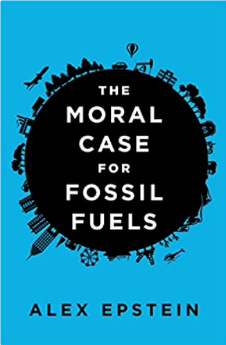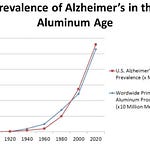
YOHO EDITORIAL NOTE: I have returned to this subject repeatedly because climate fables—like Covid—are one of the globalist strategies to control, terrify, and impoverish us. There are academic debates about some of these issues, but most of what follows from Epstein’s book is obvious to any serious student.
Eighty-seven percent of all energy use on earth is from coal, oil, or natural gas. For over 30 years, “experts” and media have been saying that these practices would soon burn us or drown us as sea levels rose. But the predicted Biblical-scale apocalypse of resource deprivation, pollution, and climate degeneration never happened. What did happen is that as billions more people obtained access to cheap, reliable energy, both the environment and the quality of human life improved.
Although fossil fuel use increased 80 percent between 1980 and 2012, Epstein shows that we will not run out of our plentiful coal, oil, and natural gas energy for possibly thousands of years.
Fear-mongering about global cooling preceded the current fad of global warming. And sea levels rose dramatically 10,000 years ago, but today’s are not changing much if at all. The most malignant and unhinged part of this story is that the modern fashion is to regard humans as cancer on the earth.
Solar and wind energy do not work for several reasons. They need expensive storage batteries because the source inputs are episodic and unreliable. The claims that they are economically viable are solely supported by calculations made during brief, ideal conditions (witness the claims about Germany). They do not take into account that the machines required have expensive components. Manufacturing them requires costly fossil fuels. The result is that generation of power with solar and wind is a net waste of energy compared to any other source. Despite this, pundits claim that this expensive, unreliable, and unscalable source will somehow be magically rendered cheap, reliable, and scalable.
Third-world countries on the edge of destitution—and ultimately starvation—cannot afford to toy with these ideas. To lift themselves out of poverty, they need conventional, reliable energy sources. It is life and death for them.
“Biomass” fuels such as alcohol from corn can scale and have produced more energy than solar or wind. However, they are expensive and their production drives food prices up.
Hydroelectric and nuclear energy are viable alternatives to fossil fuels but are hated with an irrational fervor by environmentalists.
In the free world, commercial production of nuclear energy has not led to a single death to date. But demagogues equate it to the hazards of hydrogen bombs even though the reactors used are uniquely safe. The power plants cannot explode and do not release consequential radioactivity. This industry has been rendered expensive because protestors have forced management into government hands. Nuclear is scalable, but we do not know how much less it would cost without the burden of the pseudoscientific opposition.
Coal is the most plentiful fossil fuel and recent advances have made burning it much cleaner.
The world population has doubled in my lifetime, yet we are far better fed than ever because of advances in food production due to genetically modified crops and the plentiful fossil fuel energy used to farm them.
CO2 has a greening or fertilizing effect on all plant life on earth. It makes the earth more livable. Denial of this established fact allows the claims that “when you use fossil fuels, you have to take into account all the environmental costs.” This is wrong—there are net environmental advantages.
The warming or greenhouse effect of CO2 is modest if any. Epstein credits the possibility that it has such an effect, but other authors think CO2 effects are tiny compared to those of a much more common substance, water vapor.
The CO2 in the atmosphere has gone up from .03 to .04 percent (300 to 400 parts per million) since the industrial revolution, and the temperature has gone up less than one degree Celsius. And there has been no increase in the world’s average temperatures since the late 1990s. And pundits who claim this is a catastrophe are plentiful but fraudulent. Great rewards await those who get media attention, and the easiest way to do it is by proclaiming doom.
Climate predictions are notoriously unreliable in every direction because there are too many variables. Epstein says, “Every climate model based on CO2 as a major climate driver has been a failure.”
Fracking. Objections to this based on flammable gas ejected into the drinking water are sensationalized lies, and the oft-filmed show of lighting water on fire from a tap involves common superficial groundwater gases such as methane. Fracking occurs many thousands of feet deep.
The biggest problem in the world today is that billions of people are starving and dying because they lack enough energy to feed themselves.
The common narrative is driven by people like Obama, who claimed on Twitter, “Ninety-seven percent of scientists agree, # climate change is real, man-made, and dangerous.” Actually, they do not agree that it is dangerous, nor was it all scientists, it was the climate scientists. The 97 percent figure came from a woke website devoted to climate apocalypse.
Human life and death are not important standards for these disaster-mongers. They seem to believe that all of our impacts are wrong and envision an ideal earth with far fewer or even no people. They rarely acknowledge that the slightly elevated CO2 levels are producing global greening, a fertilizer effect and that this is a wonderful good for mankind. Epstein says that we should apologize to the fossil fuel industry because increased fossil fuel usage correlates with increased lifespan, income, and other positive effects.















Share this post